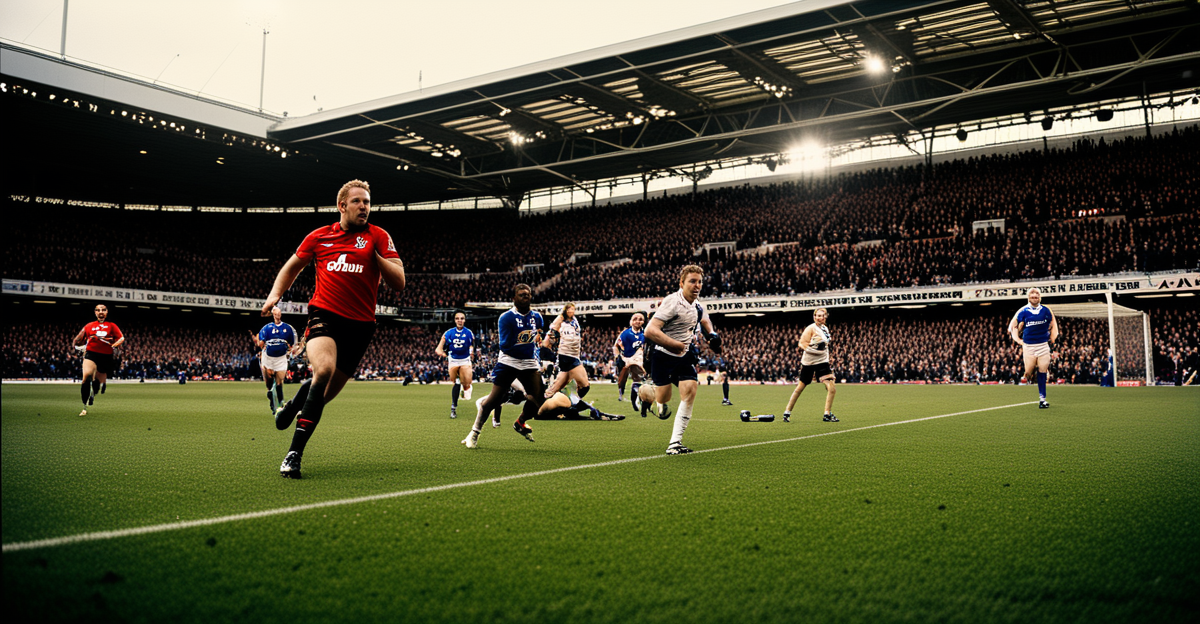Foundations of UK Sporting Excellence
The UK sports history is deeply rooted in a rich tradition where cultural values and national identity have continually shaped competitive foundations. From the earliest forms of organised play, grassroots participation was pivotal in fostering a widespread passion for sports across communities. This strong local engagement laid the groundwork for the UK’s later success on international platforms.
Traditional sports like football, cricket, and rugby were not only expressions of leisure but also integral to social cohesion, reflecting broader societal values. The competitive foundation of UK sports was further strengthened by early investment in organising leagues and competitions, enabling a structured environment for talent to emerge and flourish.
Also to discover : Exploring UK Sports: How Do They Influence Community Bonds?
The intertwining of heritage and sports created a unique national ethos that motivated athletes and supporters alike. This ethos emphasized fair play, resilience, and collective pride, which still defines UK sport today. Significantly, the culture of nurturing talent from the grassroots level ensured a steady pipeline of athletes equipped to compete at higher levels, demonstrating how cultural values effectively support a sustained tradition of sporting excellence.
Innovations in Training and Sports Science
UK sports science has undergone a remarkable evolution, blending cutting-edge research with practical training methods. From early focus on physiology and nutrition, the UK has positioned itself at the forefront of sports science, making performance innovation a national priority. This has been achieved through investment in specialised research institutions and the adoption of data analytics to enhance athlete development.
Also to see : How Can UK Athletes Enhance Their Performance Using Technology?
How has sports science in the UK impacted training methods? UK training methods now incorporate biomechanical analysis and advanced physiological monitoring to tailor individual programmes. This precision allows for optimisation of strength, endurance, and recovery, which directly improves competitive outcomes. The use of wearable tech and motion capture to analyse movement patterns is a key example of this innovative approach.
Facilities such as the English Institute of Sport provide elite athletes access to state-of-the-art technology and expert support staff. These centres integrate interdisciplinary input from sports psychologists, physiologists, and nutritionists, creating an environment primed for maximising performance. Such resources underscore the significance of sports science UK in elevating training methods beyond traditional practices — making the UK an exemplar in combining science and sport.
Strategic Policies Driving Success
Strategic UK sports policy has been crucial in transforming the country’s international sporting status. Focused sports funding directed towards Olympic and elite athlete programmes has enabled comprehensive support structures. This investment ensures that high-potential athletes receive targeted coaching, world-class facilities, and scientific resources needed to excel.
How have these policies pushed UK performance forward? By integrating talent identification strategies—scouting promising athletes from youth programmes and regional clubs—policymakers create a strong talent pipeline. These strategies involve systematic data collection and analysis to spot potential early, allowing tailored development plans.
Collaboration is another cornerstone. Universities, governing bodies, and sports clubs work together to share knowledge and resources, aligning their goals to maximise athlete progress. This multi-level approach enhances training, research, and competition readiness.
Three key impacts of this approach are:
- Increased medal yields at Olympic Games and world championships.
- Long-term athlete development supported by science and coaching synergy.
- Broader access to structured pathways from grassroots to elite levels.
Together, these strategic policies and investments provide a sustainable competitive foundation for UK sports, demonstrating how purposeful funding and collaboration can drive lasting success.
Case Studies: Signature UK Sporting Achievements
Exploring UK sporting achievements reveals how strategic investment and innovation transformed key sports like football, cycling, and rowing. Football’s global impact stems from its deep-rooted cultural significance and evolving competitive foundation. UK football clubs not only excel locally but influence worldwide tactics and fandom, showcasing the sport’s international resonance.
How did Team GB’s Olympic transformation lift UK performance? Focused sports funding and data-driven talent identification bred a new era of Olympic success. By prioritising athlete support and integrating scientific research, Team GB enhanced training outcomes, leading to a record medal haul. This is a prime example of how targeted policies translate into tangible victories.
The rise of British cycling illustrates interdisciplinary collaboration. Integrating sports science UK with meticulous coaching and equipment innovation, British cycling advanced rapidly. This combination fostered multiple world championships and Olympic golds, underscoring the importance of blending technology and expertise.
These examples show that UK sports achievements arise from multifaceted strategies. Football’s cultural foothold, Olympic planning, and cycling excellence all benefit from a holistic approach combining heritage, science, and policy. Such cross-disciplinary expertise nurtures sustained success across individual and team sports, informing future trends and strategic directions.
Expert Perspectives and Evolving Trends
Insights from expert sports analysis UK reveal that modern UK sports increasingly prioritise athlete welfare alongside performance innovation. Leading coaches and sports scientists emphasize holistic approaches, integrating mental health support and personalised recovery protocols within training methods. This shift directly addresses long-standing concerns over burnout and injury, improving longevity in athletes’ careers.
What recent trends shape the future of UK sports? Inclusivity is paramount, with schemes targeting underrepresented groups to widen access and talent pools. These initiatives reflect evolving social values while enhancing competitive depth. Simultaneously, technology adoption accelerates, with advanced data analytics and AI tools providing strategic advantages in preparation and in-game decision-making.
Experts also identify ongoing challenges, such as balancing commercial pressures with athlete-centred policies and maintaining funding levels amid economic uncertainties. Collaborative frameworks between universities, governing bodies, and clubs are seen as essential for innovation continuity and resource sharing.
Notably, future of UK sports will hinge on adapting to global shifts in competition standards and embracing emerging tech without compromising cultural values. By fostering diversity and leveraging interdisciplinary expertise, UK sport is poised to sustain excellence while evolving responsively to its community’s needs. This balanced vision underpins the country’s competitive future.




